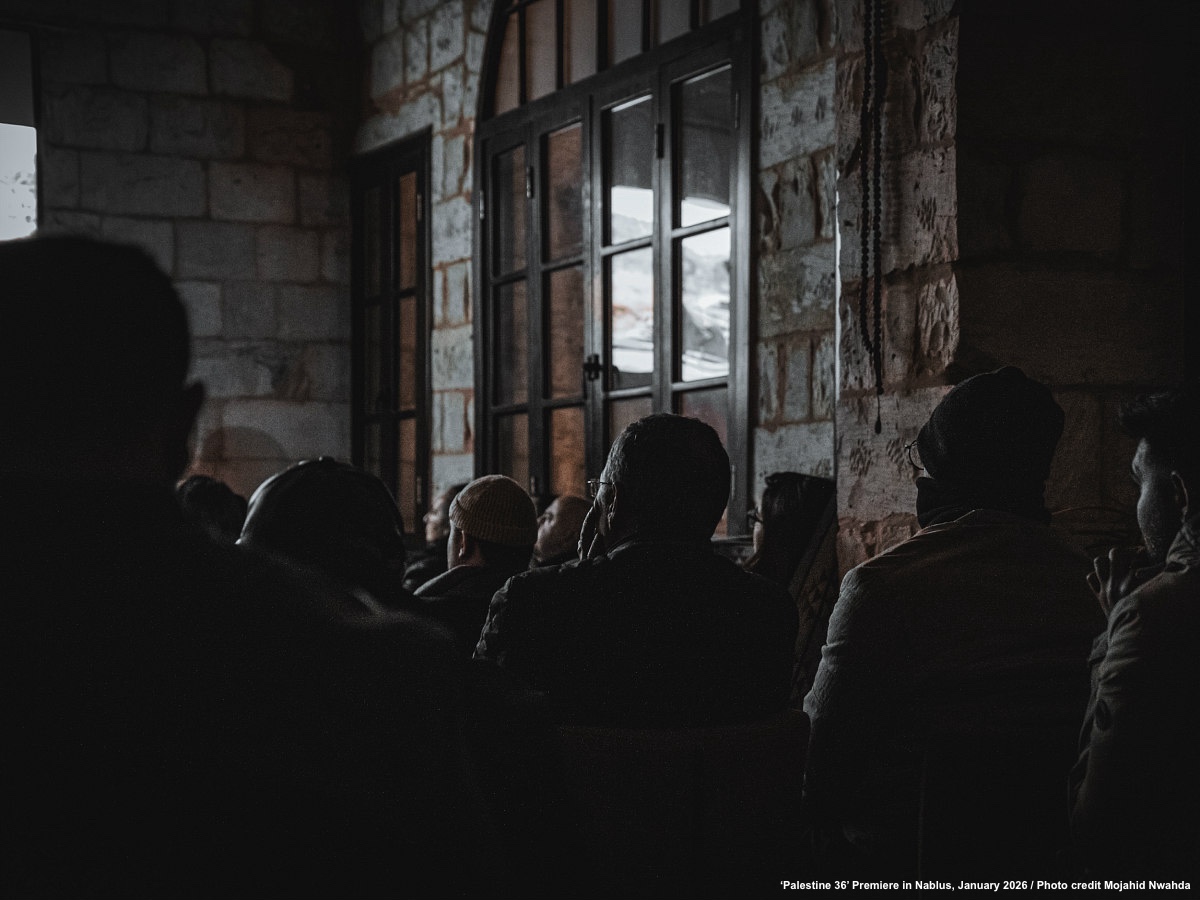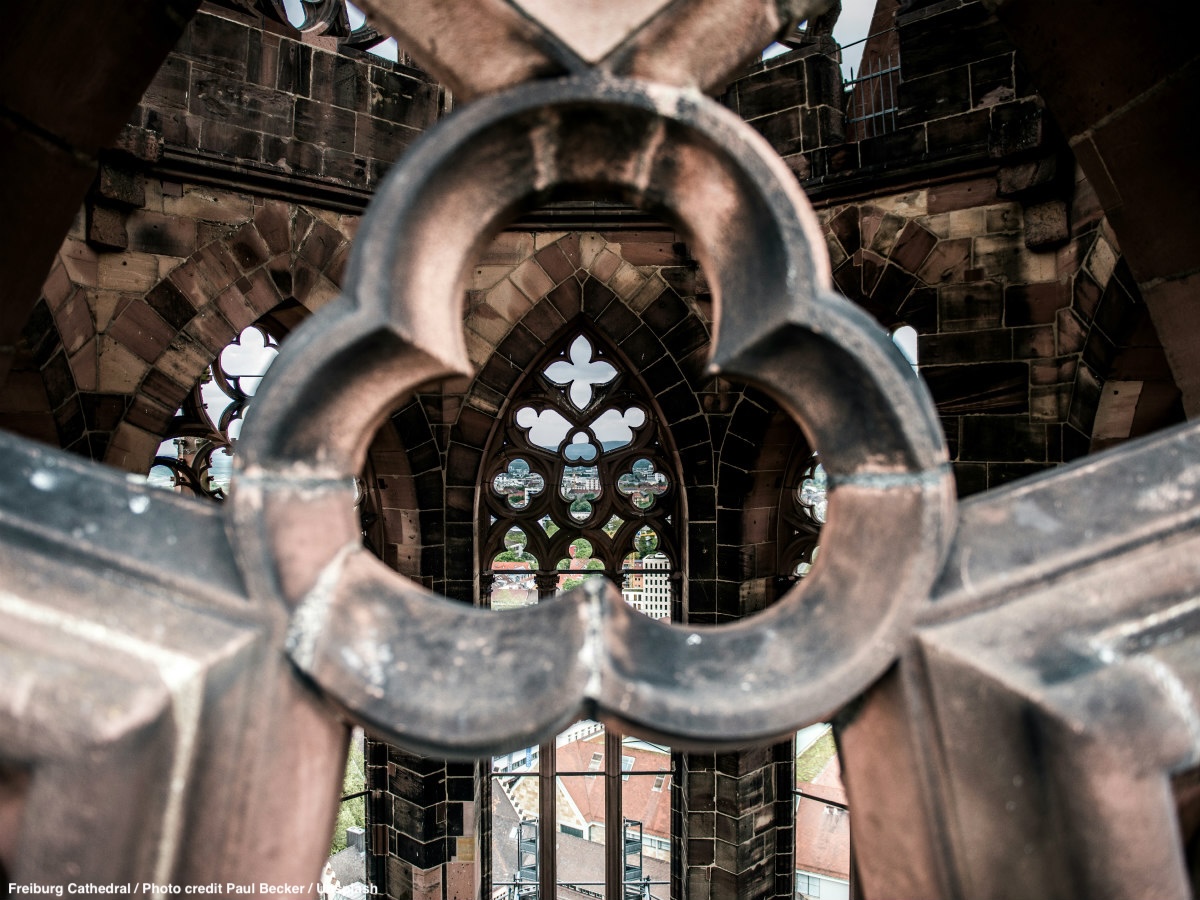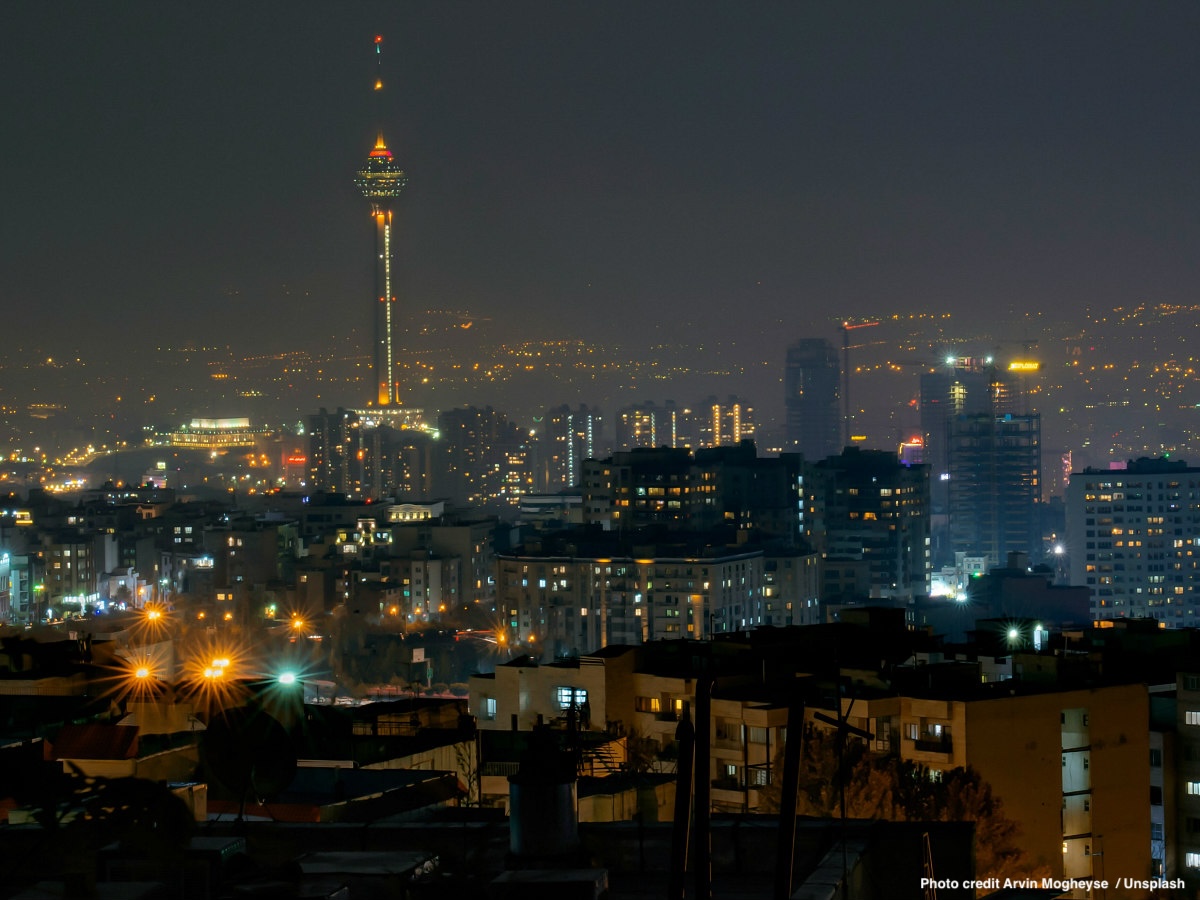Listen to the audio version of this article (generated by AI).
On an evening last November, South Sudanese artist Emanuel Kembe’s reggae music cut through the usual racket of the bustling Jofa Market in Juba, Africa’s youngest capital in South Sudan. Within minutes, a crowd of all ages gathered around a group who had put on a play on the street—people stood, sat, and even watched from rooftops. As the sun dipped, the performers scrambled to find enough light and keep people engaged. Where artistic expression withers in the dark of all war all the time, what this group is staging is no small thing: the healing of deep-rooted divisions and the support of a flimsy nation-building process in South Sudan.
Among the crowd at Jofa Market was nineteen-year-old Deng Micheal, who stared at the performers who were speaking in both Juba Arabic and his Jieng Dinka language. “Seeing stories told in our language, right where people live, is a call to remember who we are and what we can build together,” said Micheal. “Culture isn’t just for halls—it’s for us, here and now.”
The use of various local languages is intentional. “We use simple Juba Arabic and Jieng Dinka to overcome language barriers,” said Yitjuok Agwet, the driving force behind the performance at Jofa Market. In a city comprising multiple ethnic groups, Agwet views multilingualism as crucial to forging unity. Together with an 11-member troupe, he has brought open-air theater to markets, sidewalks, green spaces, and dusty corners around South Sudan’s capital, turning these places into spaces of public imagination.
***
Yitjuok Agwet is a man of letters. He studied literature and has translated works by South Sudanese writers, such as the literary giant Taban Lo Liyong, into Arabic to “spotlight our sidelined literature to Arabic readers,” as he put it, and foster cultural dialogue in Sudan and South Sudan. In 2019, he moved from Khartoum to Juba, located along the banks of the White Nile River. He was disheartened to discover that the vibrant cultural scene in Juba, which he had studied at university, had vanished.
Juba’s physical landscape mirrors the city’s cultural scars. A long conflict has long fractured public life in the capital. Already in 1983, President Nimeiry’s imposition of Sharia law on the predominantly Christian South disrupted traditional tribal governance and social systems,” explained cultural activist David Uku. “Cinemas closed, cultural centers disappeared. Places like Nyakuron Cultural Centre and the Youth Centre became inaccessible.” The Second Sudanese Civil War (1983–2005) criminalized public gatherings and dismantled traditional community structures.
In July 2011, South Sudan broke away from Sudan, and a new country was born, but dreams of cultural renewal were quickly crushed by a new civil war between 2013 and 2018, displacing over 4 million people in South Sudan. Following the 2018 peace agreement, Juba began to grow again, outpacing its infrastructure. However, cultural venues, once intended for the public good, largely became privatized.
Nyakuron, once a hub for theatre and dance, was leased to the Bros Hotel Group and now functions as a nightclub, accessible only to those who can afford it. The Youth Centre in Hai Neem is a football pitch. The old Juba Picture House—the first cinema in Juba, built by a Greek businessman in 1954—has been converted into a church. “The lack of public spaces shapes how South Sudanese youth see each other,” says Agwet.
He explains that young people from different ethnic, social, or political backgrounds rarely meet outside their immediate communities. This deepens social fragmentation, reinforces stereotypes, and perpetuates mistrust. In a nation emerging from prolonged conflict, the absence of communal spaces has deprived young people of opportunities to build inter-ethnic relationships and envision a shared national identity, hindering the nation-building process in South Sudan.
Recommended Read: The Cultural Ambassadors of Bolgatanga, Ghana
With few alternatives, some youth become easy targets for recruitment by armed groups or engage in cattle raiding or any other harmful activities suggested by those who seek to exploit their frustrations. The limited interaction across divides perpetuates a vicious circle of violence.
“While ethnic cultural events exist, I believe inclusive public spaces are vital, ensuring everyone’s right to engage in and enjoy our shared cultural life,” said Agwet. However, he lamented that “restrictions on assembly still limit us.”
Today, although the open curfews that were in effect between 2013 and 2016 may have been lifted, Agwet explains, restrictions persist under the guise of legality and national security. The tactics have simply shifted from overt bans to administrative gatekeeping. The National Security Act of 2014, as amended in 2023, has introduced bureaucratic obstacles, most notably, the requirement for a “letter of no objection” from the authorities before any public activity, including peaceful assemblies, can proceed.
In practice, this letter is rarely granted and often denied without explanation, effectively stifling the work of civil society, activists, and cultural practitioners. Still, state control over public assembly remains intact, suppressing citizens’ rights to gather, engage in cultural life, express themselves, and organize in Juba and throughout South Sudan.
In 2023, Agwet was selected for a cultural advocacy training program run by Action for Hope, a nonprofit that supports cultural initiatives in crisis contexts. One year later, he launched the youth-led campaign Spaces4Culture, which organizes open-air performances around Juba. Despite facing frequent bureaucratic hurdles—and even having to pay for “letters of no objection” from local authorities—the troupe persists.

Each performance is not just a creative act but also a quiet form of resistance aimed at reviving South Sudan’s cultural life and reaffirming the right of its people to gather, imagine, and shape their collective identity. “In a city robbed of shared spaces, our campaign reclaims public stages. Culture is Juba’s heartbeat and democracy’s lifeline,” says Agwet. “My studies help me theorize cultural spaces’ role in nation-building in conflict societies such as South Sudan.”
***
The movement has resonated well with young people. “A memorable moment with the audience took place during a performance in the Jofa residential area,” Agwet recalled. Local youth expressed interest in forming their own group and establishing a cultural center in the neighborhood. They asked if Agwet’s team would be willing to train them in cultural management and drama.
Rebecca Lorins, co-founder of the Likikiri Collective and a cultural historian, acknowledges Agwet’s movement as part of a much longer tradition. Her PhD on South Sudan’s Kwoto Cultural Foundation documented how older generations used performance to preserve identity during the conflict.
Recommended Read: Resisting the War With the Written Word
However, Agwet’s ambitions extend well beyond theater. In 2025, he plans to lead Spaces4Culture in forming a coalition of artists and cultural activists to lobby South Sudan’s Revitalized Transitional National Legislative Assembly and Council of States for the protection of public space and cultural rights. “I’ll lead Spaces4Culture to focus on legal advocacy, uniting cultural actors in a coalition to push for cultural rights and public space reforms,” he said. “We’ll engage legislative committees, organize meetings, and form lobbying teams to drive legislative change.”
The group also plans to advocate for the restoration of the Nyakuron Cultural Centre and the creation of a national museum. By connecting neighborhood performances with long-term policy change, Spaces4Culture aims to spark not just a cultural revival in Juba but a shift in the national consciousness.
“We are advocating for cultural spaces because artistic expression is a fundamental human right and essential to the nation-building process in South Sudan,” Agwet stated. By organizing open-air theater, he and his team are not only asserting this right but also creating spaces that, over time, will influence policies to reclaim former state-owned areas and places that have been privatized and, hopefully, place cultural activities at the heart of national policy and identity.
This piece is published in collaboration with Egab.





